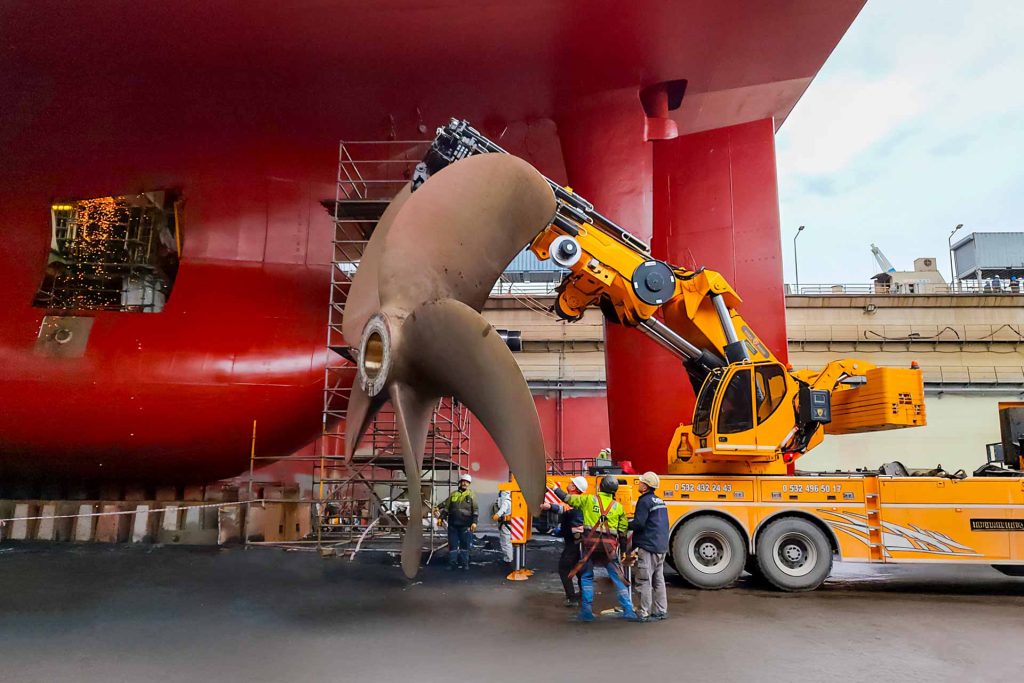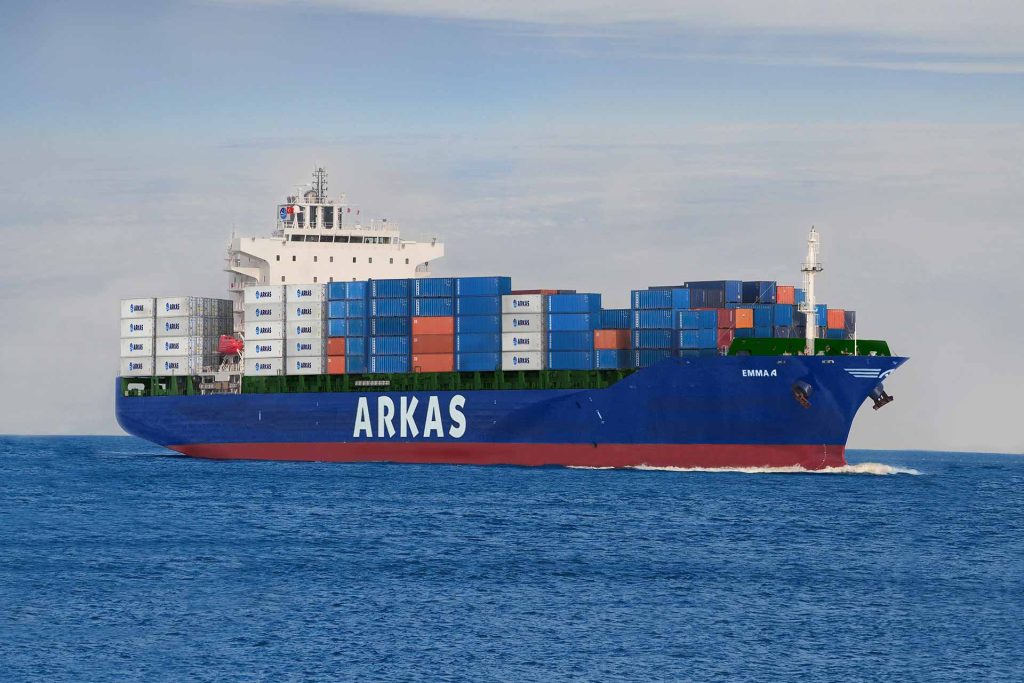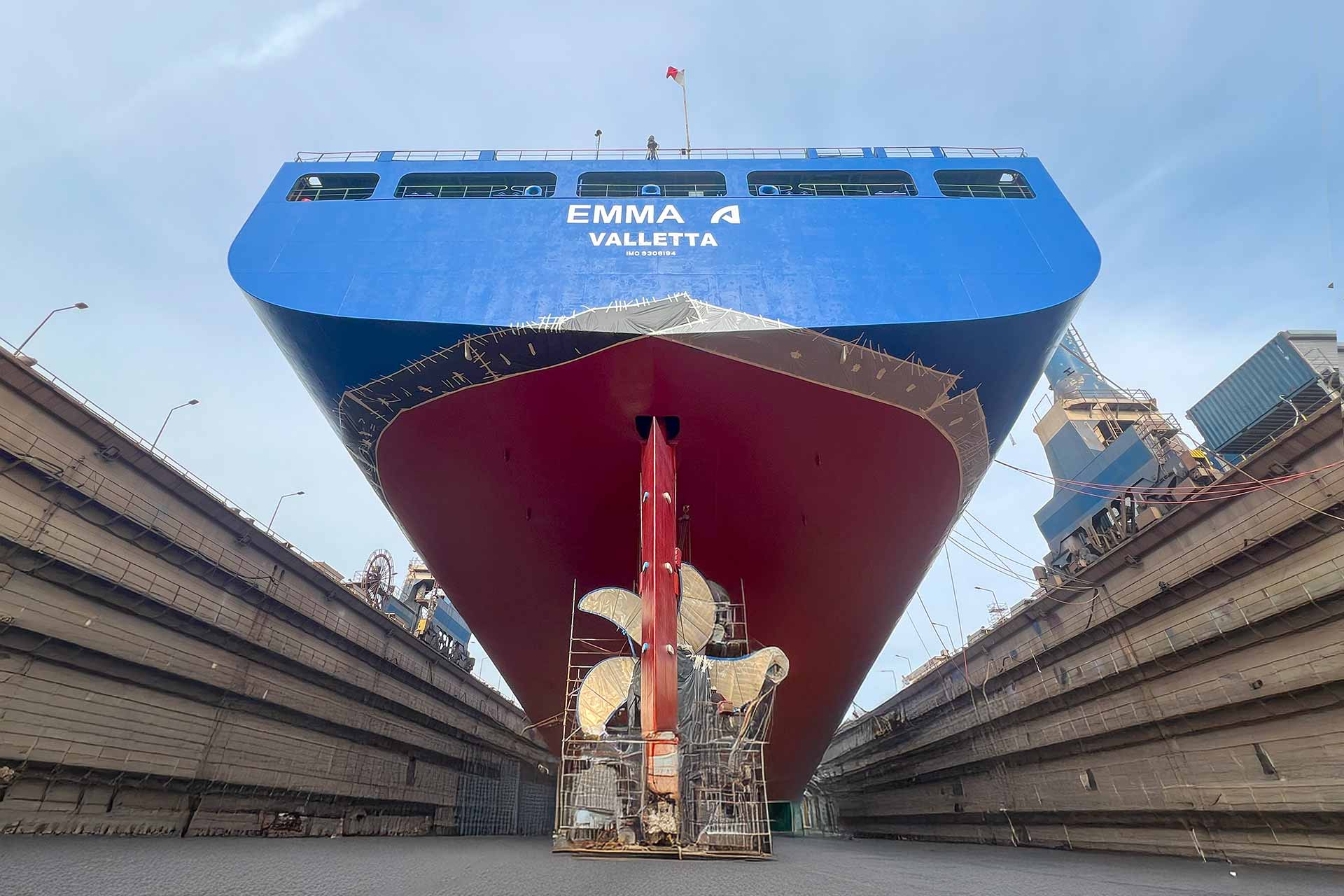Strengthening its commitment to reducing greenhouse gas emissions and addressing climate change, Arkas Line is taking another key step toward sustainability. The company has begun replacing propellers to increase energy efficiency by up to 8% while simultaneously reducing fuel consumption and its carbon footprint.
Arkas Maritime Group is demonstrating a clear commitment to sectoral sensitivity in response to the environmental challenges facing our world. After introducing Bio24F, a bio-component marine fuel supplied by Arkas Bunker, on the container vessels of Arkas Maritime Merchant Fleet operated by Arkas Line, Arkas Maritime Group is now renewing the propellers on its vessels, leading to an 8% increase in energy efficiency.
As part of this initiative, vessels from the Arkas Maritime Merchant Fleet scheduled for propeller renewal in 2025 have started entering shipyards. The installation on Emma A has been completed, while the renewal process for Stanley A is currently ongoing. Next in line is Saskia A.
Through this effort, the goal is to improve energy efficiency, cut down on fuel consumption, and subsequently reduce carbon emissions and the vessel’s overall carbon footprint. On Emma A, the propeller’s weight was reduced from 47 tons to 37 tons through the revision. The propeller hub was also upgraded to optimize water flow, a fan-like structural component was mounted on the hull, and a scrubber system was installed.
All the revisions carried out aim to achieve an energy efficiency improvement in the range of 7-8%. The primary goal of installing scrubbers on the vessels is to reduce sulfur emissions to below 0.1% not only in ECA (Emission Control Areas) but globally. Additionally, increasing the efficiency of the vessels contributes to circularity by enabling them to remain in service for longer periods.
Technology for Sustainability
Advancements in CFD (Computational Fluid Dynamics) technology now allow for a much more detailed analysis of a vessel’s underwater structure and design. These developments make it possible to produce propellers that deliver maximum efficiency tailored to the vessel’s specific structure. The Aluminum-Bronze-Nickel ratio remains unchanged, while the blade angles are adjusted to reduce weight.
Arkas Line, the only Turkish company that has been a member of the Clean Cargo Working Group since 2013, regularly reports its Scope-1 emissions and has achieved more than a 25% reduction in emissions compared to its 2011 baseline. Even as its service network grows, the company aims to further reduce emissions by 2025 through ongoing operational improvements. The same revision is planned for 3 vessels entering the shipyard in 2025, and the number of vessels undergoing similar revisions is expected to increase in the following years.




